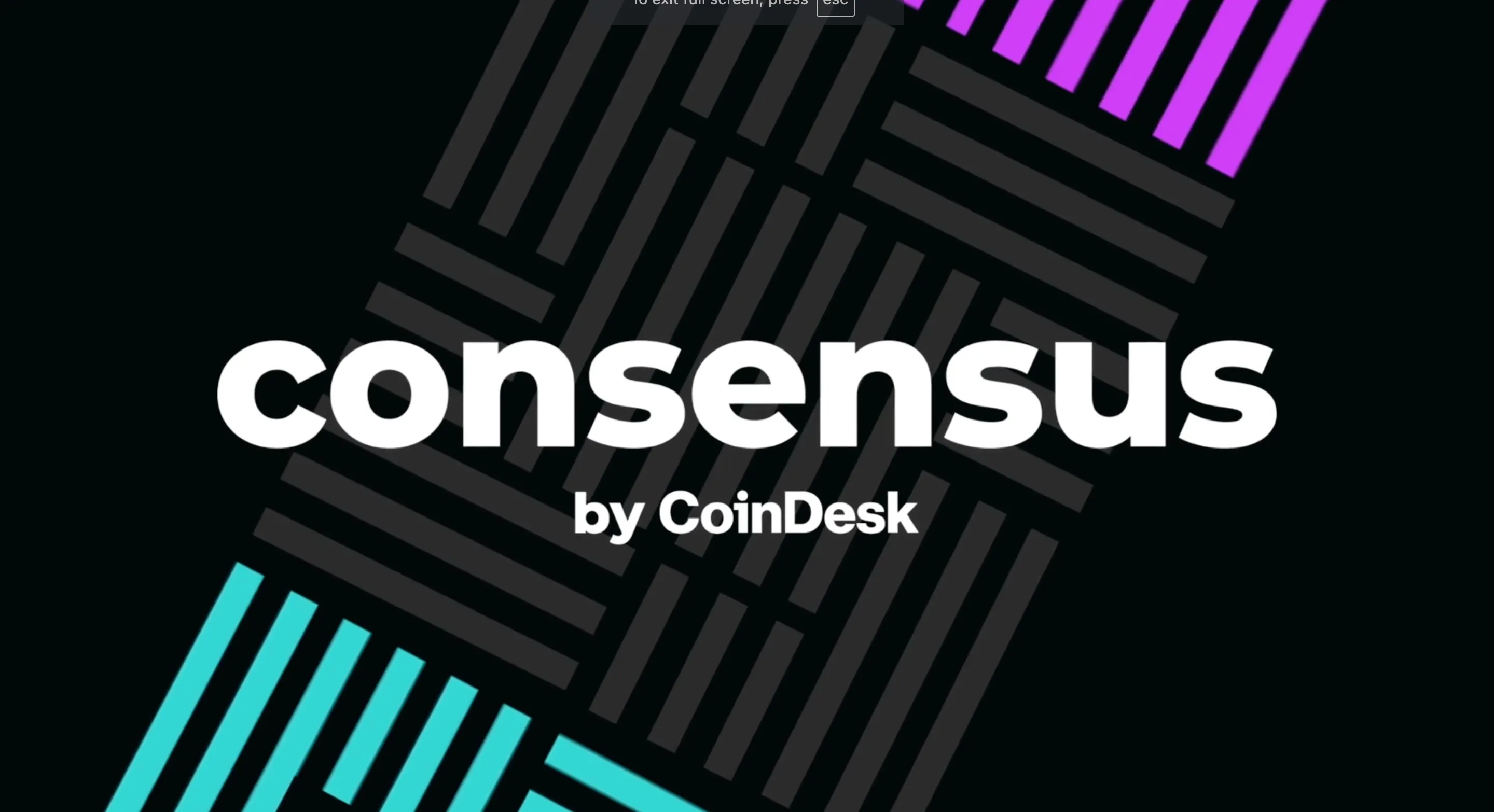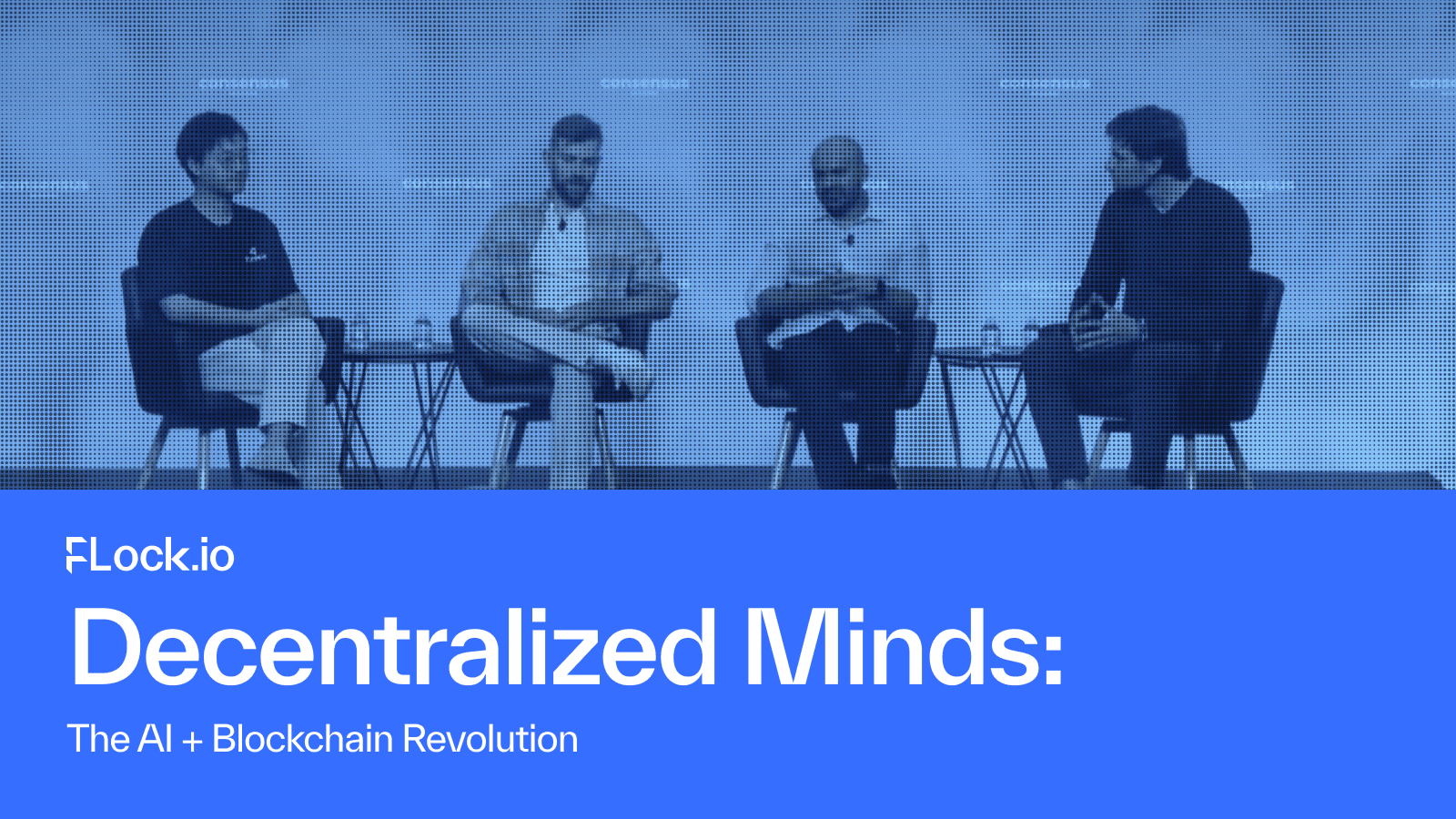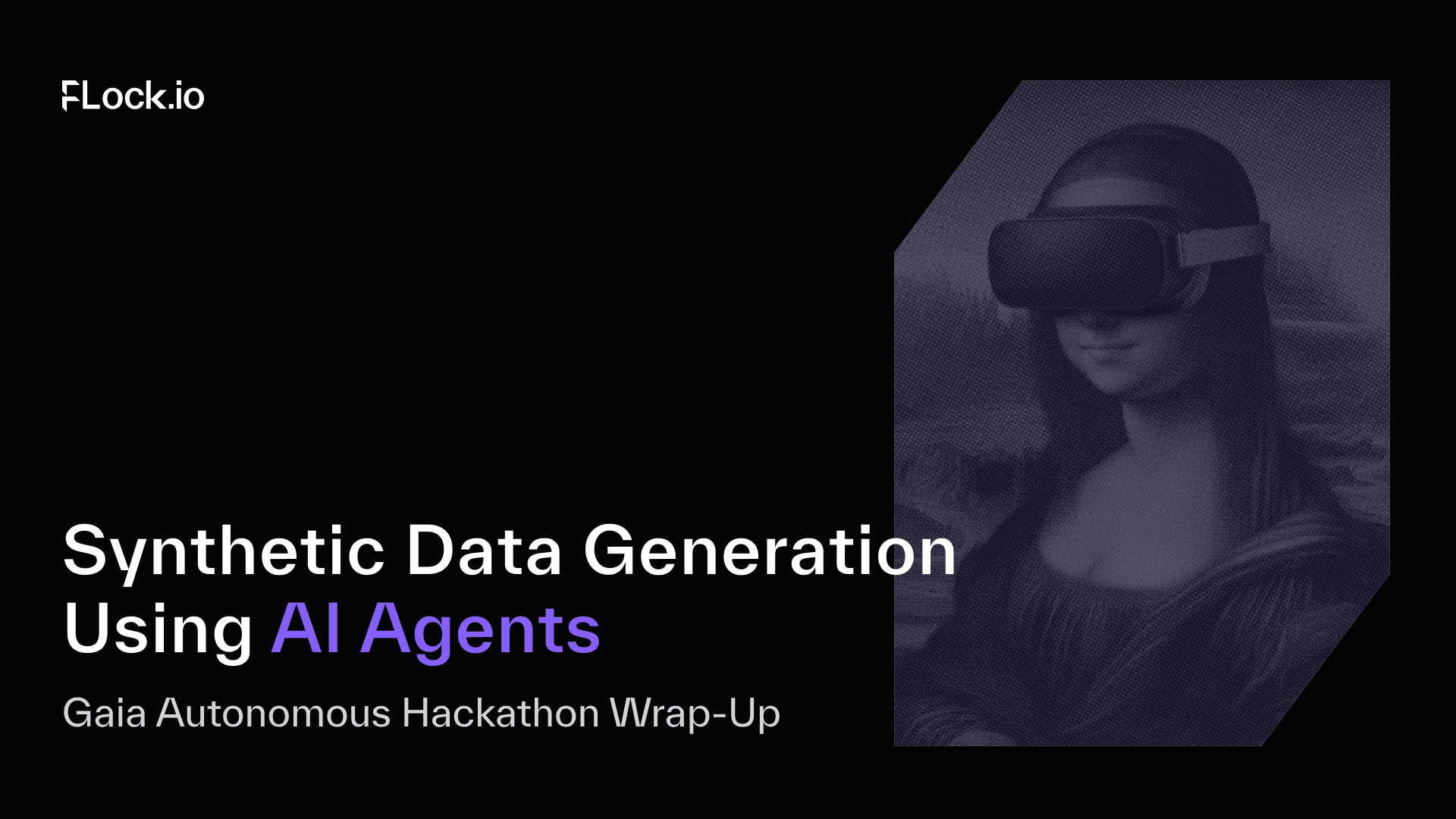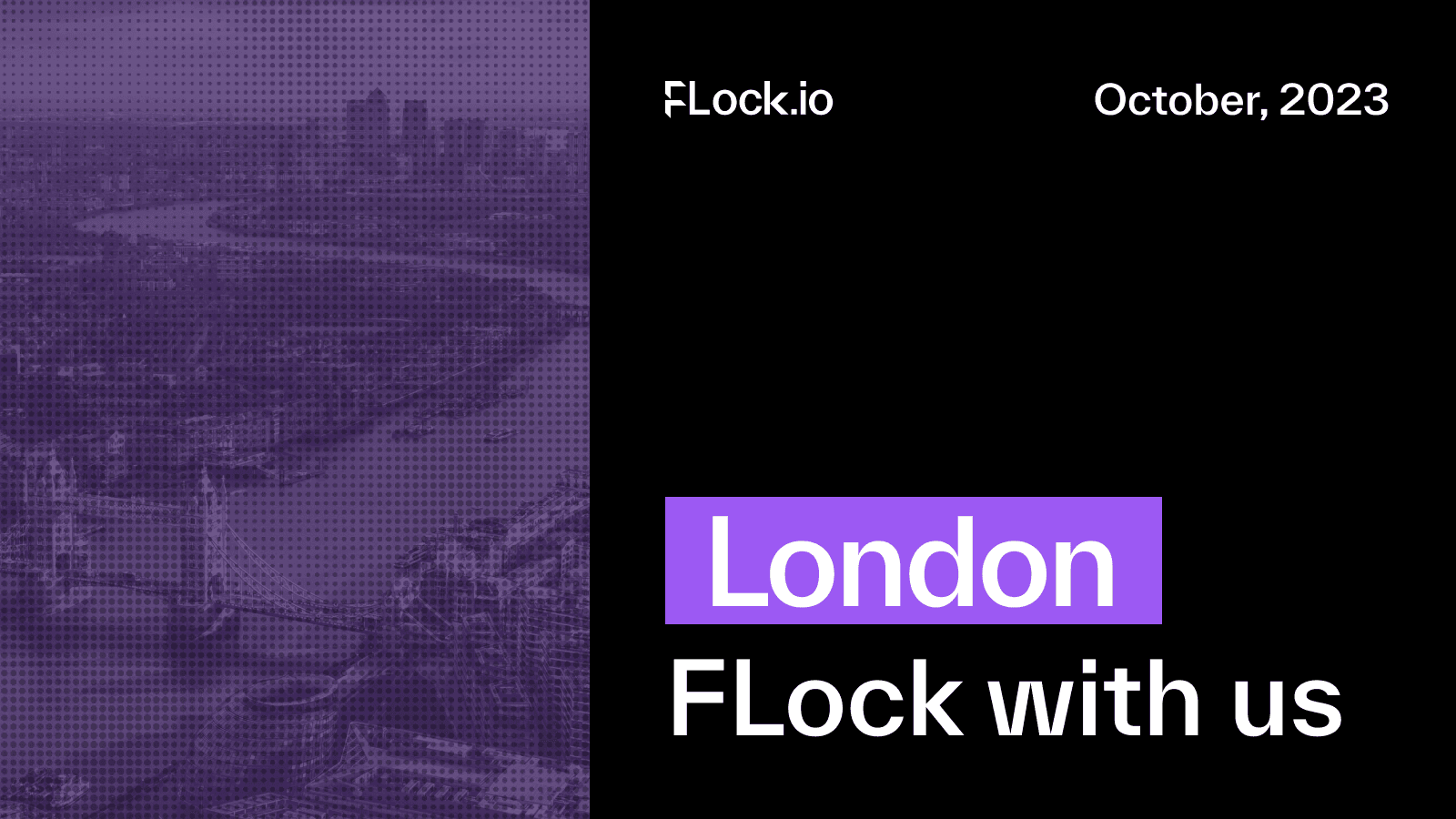FLock.io CEO Jiahao Sun had the pleasure of speaking on the panel ‘Decentralized Minds: The AI + Blockchain Revolution’ with Gensyn’s Ben Fielding and Akash Network’s Greg Osuri, hosted by Foundry’s Tommy Eastman. All panelists lead startups making breakthroughs in this intersection.
Bitcoin demonstrated the feasibility of running a system without a centralised authority. Decentralized physical infrastructure networks (DePINs) apply this concept to computing and data collection and storage. Throw AI into the mix, and you can envision a future where founders innovate faster, at lower costs, by harnessing previously untapped resources and ideas across global networks.
Several obstacles are faced by decentralised AI: privacy, consistent end user adoption of GPUs, and quickly moving large quantities of data. This article summarises what we discussed in relation to these issues.
How do DePINS solve the privacy issue?
There is no magic solution. For training a model to be, for example, your PA, for it to perform well you need to share a lot of your personal data.
Sending data to a central server for compression is the worst case scenario. You are blind to who is touching your data, and what they’re doing with it.
The ideal solution would be: instead of sending your data away to a server, the compute is brought to you. This is still in the distant future. For now, the aim is to move model training closer to the user. The transparency of open-source, decentralised systems places them in a significantly better position to give you guarantees.
Consistent end user adoption
Three-sided marketplaces in crypto have traditionally struggled to attain consistent end user adoption. Why is this different this time, in the GPU space?
GPU supply chain is broken and constrained. At present, it is difficult to obtain enough high density GPUs to perform training and inference at scale.
We are seeing a golden opportunity. There is a colossal amount of unused, or underutilised, chips lying around. If we incentivise the supply side to exist, leverage these chips, and introduce better verification protocols than were possible in the past, then we can solve the problem.
Moving lots of data fast
A possible counterpoint to DePINs is: how can we move a lot of data fast, with bandwidth and compute constraints?
The goal is to depart from the traditional practice of training a single large model in one place, and move towards an architecture where there are lots of mini models in different devices. When needed, we can compose larger models out of the small ones.
With the future of machine learning, there are no worries about bandwidth.

FLock.io, Gensyn, and Akash Network
FLock.io recently launched the world’s first decentralised AI Arena beta on train.flock.io, where the public can collaboratively train models for equitable incentives. FLock addresses the need for bespoke, on-chain and community-governed AI models. Through integrating federated learning and blockchain, FLock trains models without exposing source data.
Akash Network is a decentralised compute marketplace. That is, an open network that facilitates the secure and efficient buying and selling of computing resources. Purpose-built for public utility, it is fully open-source with an active community of contributors.
Gensyn is on a mission to connect all of the world’s compute into a single network–enabling programmatic machine learning training at low cost and high scale.
Closing thoughts
We invite the public to participate in training models today. Get whitelisted here.
Find out more about FLock.io here, and read our docs.
For future updates, follow FLock.io on Twitter.


